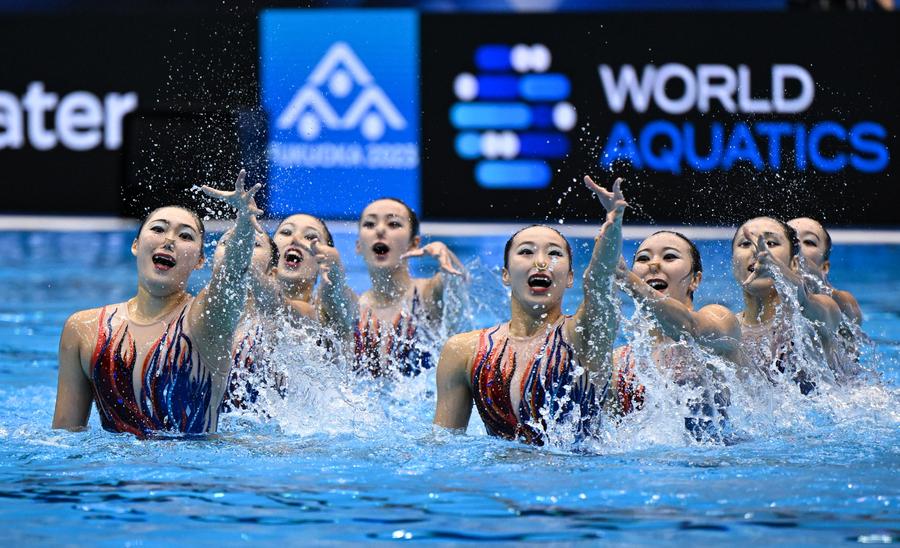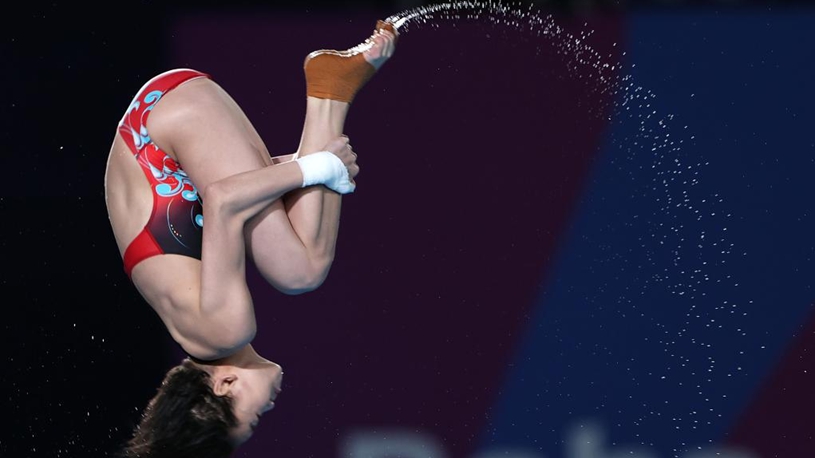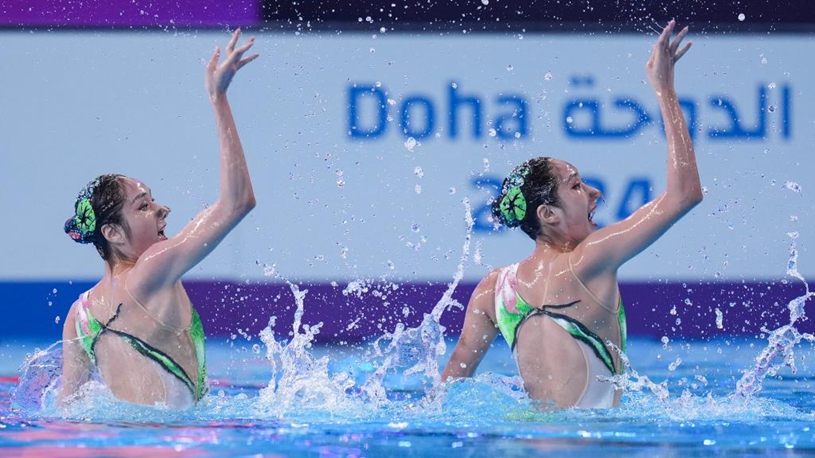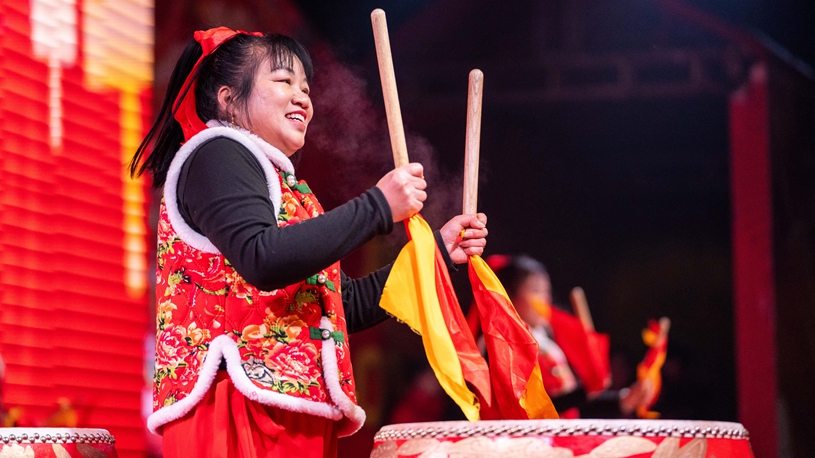Under the new scoring regulations in artistic swimming, teams will have to balance between difficulty, execution and artistic impression.
DOHA, Feb. 6 (Xinhua) -- The introduction of new scoring regulations in artistic swimming has led to significant changes in the outcomes of two finals at the Swimming World Championships.
These changes, first implemented at the World Championships in Fukuoka, have overhauled the evaluation system by significantly increasing the difficulty of maneuvers. Competitors must now submit difficulty score cards before the competition, with high scores attainable only through the execution of challenging routines with precision and minimal errors.
China, previously already dominant in the team acrobatic, adopted a distinct strategy in the team technical event.
China's coach Zhang Xiaohuan underscored that Chinese athletes don't necessarily hold an advantage in executing high-difficulty acts compared to their counterparts.

"Increasing difficulty poses a double-edged sword," Zhang remarked. "If the difficulty score is acknowledged, it might propel one towards championship success, but failure to do so could result in missing out on even a podium finish. Everyone is striving to adapt to this dynamic now."
Reflecting on China's experience in Fukuoka, where the team excelled in preliminaries but did not perform as well in the finals, Zhang emphasized her team's focus on stability this time around.
"We refrain from significantly increasing the difficulty levels, sticking to our original routines. I want to experiment whether focusing on execution and artistic impression rather than radical difficulty could secure win," Zhang explained.
Their final tally stood at 299.8712 points to secure the top spot, while Spain trailed with 275.8925 points, claiming the silver, and Japan settled for third place with a mere 0.0138 point deficit.
"This experience underscores the judges' ability to differentiate based on execution and artistic impression scores. It sends a clear signal for the sport's development, emphasizing the importance of not solely pursuing higher difficulty levels but also prioritizing artistic expression," Zhang concluded.
The championships also put spotlight on Vasiliki Alexandri's performance in the women's solo free event, further validating Zhang's approach.
Despite her strong performance in the preliminaries, Alexandri's efforts in the finals did not live up to expectations in terms of both artistic expression and difficulty score.
The 26-year-old, a dual silver medalist in Fukuoka in both the solo technical and solo free events, placed sixth, her final score of 222.8938 reflecting the high stakes and intense competition under the new scoring system. ■












